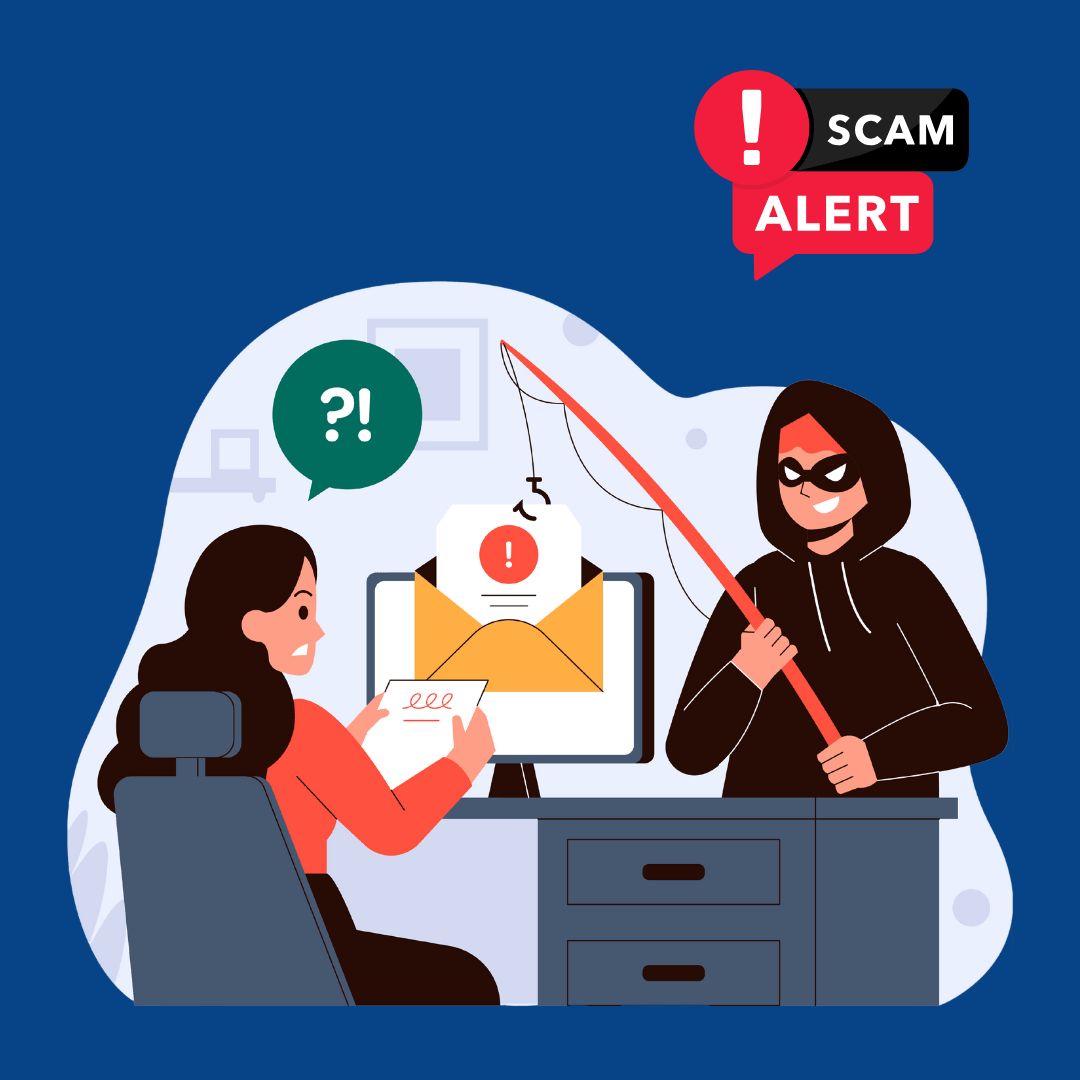
In today’s interconnected world, the threat of fraud is ever-present. Cybercriminals and scammers are thinking up new ways to dupe people all the time. In order not to fall prey to these people, one needs to be very aware of the various kinds of frauds and implement comprehensive strategies that keep one very safe. This guide delves into key measures that can help you to be vigilant and secure against a myriad of fraudulent activities.
Understanding Fraudulent Threats
Fraudulent threats come in many forms, and one of the most prevalent ones is cyber fraud. Cyber fraud simply refers to illegal acts committed using the internet. Such activities include phishing attacks, whereby the cybercriminals con people into giving out sensitive information through well-fabricated emails or websites. Malware infections are another common form where security on your devices is compromised and ransomware locks up your data until a ransom is paid.
Financial scams are another significant threat, often involving elaborate schemes to trick people into giving away money or personal details. Ponzi schemes, investment fraud, and lottery scams are just a few examples. Scammers typically employ social engineering tactics, manipulating emotions and creating a false sense of urgency to exploit their victims.
Identity theft is a critical issue where an offender uses another individual’s personal information to commit crimes or open credit accounts and services in his name. Awareness of the symptoms of such threats becomes very essential for their early detection and prevention.
Recognizing the Signs of Fraud
The very first line of defense in protecting yourself is being able to recognize fraud. One clear, more immediate indicator of fraud is suspicious activity occurring on financial accounts. This could be unfamiliar charges on your credit card or unexpected withdrawals from your bank account. Be sure to always go through your statements and take notice of anything that seems odd.
Most phishing will manifest as sympathetic emails or messages from credible sources, especially those that elicit sensitive information or download malware into a person’s computer. Such communications may be very convincing, but closer and more careful examination can quickly reveal some telltale signs: spelling errors, generic greeting messages, and urgent requests to reveal sensitive information.
Another red flag is unexpected bills or collection notices for services that you never used or accounts that you’ve never opened. More than likely, this will indicate your identity has been stolen or your information has been used in fraudulent activities.
Protecting Your Personal Information
One of the most effective ways to safeguard your personal information is by using strong, unique passwords for all your online accounts. Combining letters, numbers, and symbols can make passwords more secure. Additionally, enabling two-factor authentication (2FA) wherever possible adds an extra layer of protection, as it requires a second form of verification beyond just your password.
Securing your devices is equally important. Ensure that your computers, smartphones, and tablets are equipped with up-to-date antivirus software and firewalls. Regularly update your operating systems and apps to guard against vulnerabilities that cybercriminals could exploit.
Being cautious with your personal information, especially on social media, is also critical. Avoid sharing too much publicly and be mindful of the details you disclose online, as this information can be used to craft more convincing phishing attempts or other scams.
Enhancing Cybersecurity Measures
Keeping track of your financial accounts is a simple habit with which fraud can be detected ahead of time. Set up alerts with your bank and credit card companies for notifications of any suspicious activity. This keeps you a step ahead, so if unauthorized transactions do occur, you can deal with the situation quickly.
Using secure networks is another vital cybersecurity measure. Avoid conducting sensitive transactions over public Wi-Fi, which is often unsecured and susceptible to interception by hackers. Instead, use a virtual private network (VPN) to encrypt your internet connection and safeguard your data.
The easiest way to protect oneself from such attacks is through education. Keep thyself abreast of the latest phishing techniques and how to identify them. Be wary of unsolicited emails, especially those asking for personal information or involving some kind of urgency. Legitimate companies will hardly ever request sensitive information via email.
Financial Scam Prevention
Beware of financial scams. Never invest your money in an investment opportunity without verifying its legitimacy. Heed the advice to research any company and the people behind the company. Read through the reviews to see whether they have cases of fraud.
Be wary of the pressure tactics that scammers use—guilting you, hurrying you to make decisions. If someone is rushing you into acting, step back. In nearly all cases, high-pressure sales are indicative of fraud.
Also, the protection can be availed of by consulting with some reputed financial advisors before taking any major financial decisions. For this, experienced advisors would guide you about those scams and will let you take an informed decision.
Identity Theft Protection
Regularly checking your credit report is an effective way to spot signs of identity theft. You can request a free credit report annually from major credit reporting agencies, which will help you monitor for any unusual activity.
Freezing your credit is another powerful tool in preventing identity theft. By freezing your credit, you make it difficult for identity thieves to open new accounts in your name. This step is particularly useful if you suspect that your personal information has been compromised.
If you discover that you have fallen victim to identity theft, act quickly. Report the suspicious activity to your bank, credit card company, and the Federal Trade Commission (FTC) immediately. Prompt action can help minimize the damage and prevent further fraudulent activities.
What to Do If You Fall Victim to Fraud
If you become a victim of fraud, the first step is to contact your financial institutions to report the fraudulent activity and request a freeze on your accounts. This can prevent further unauthorized transactions.
Filing a report with the Federal Trade Commission (FTC) is also crucial. The FTC handles consumer complaints about identity theft and other frauds. Your report can help them track fraud trends and protect others from similar scams.
After reporting the fraud, closely monitor your credit for any further suspicious activity. Consider enrolling in a credit monitoring service for added protection. These services can alert you to changes in your credit report, helping you detect and address potential fraud quickly.
Conclusion
One has to be very proactive and informed to stay ahead of the fraudulent threats in today’s phase of ‘connectivity’. Your risk of becoming a victim of cyber fraud, financial scam, or identity theft could be hugely reduced if you are conversant with different ways of frauds and able to recognize the warning signs on time and put corresponding protective measures into place.
This necessitates periodic review of accounts, protection of personal information, and constant updating regarding the latest fraud techniques. Use strong passwords; activate two-factor authentication; engage advisors you trust in making significant financial decisions. If there is suspicion, quickly report it to reduce as much damage as possible.
Be vigilant, and adopt the proper strategies to ensure you’re properly shielded from fraudulent threats in protecting your personal and financial security.
What are the most common types of cyber fraud?
The most common types of cyber fraud include phishing attacks, malware infections, and ransomware. These attacks are designed to steal personal and financial information.
How can I recognize a phishing email?
Phishing emails often contain urgent messages, requests for personal information, or links to fake websites. Look for spelling errors, generic greetings, and suspicious attachments.
What steps can I take to protect my identity?
To protect your identity, use strong passwords, enable two-factor authentication, regularly monitor your credit report, and avoid sharing too much personal information online.
What should I do if I suspect I am a victim of identity theft?
If you suspect identity theft, contact your bank, credit card companies, and the FTC immediately. Monitor your credit for further suspicious activity and consider freezing your credit.
How can I avoid falling victim to financial scams?
To avoid financial scams, verify the legitimacy of investment opportunities, be wary of high-pressure tactics, and consult with trusted financial advisors before making significant decisions.
Why is it important to use a VPN on public Wi-Fi?
Using a VPN on public Wi-Fi is important because it encrypts your internet connection, protecting your data from hackers who might intercept information on unsecured networks.
Explore More :


